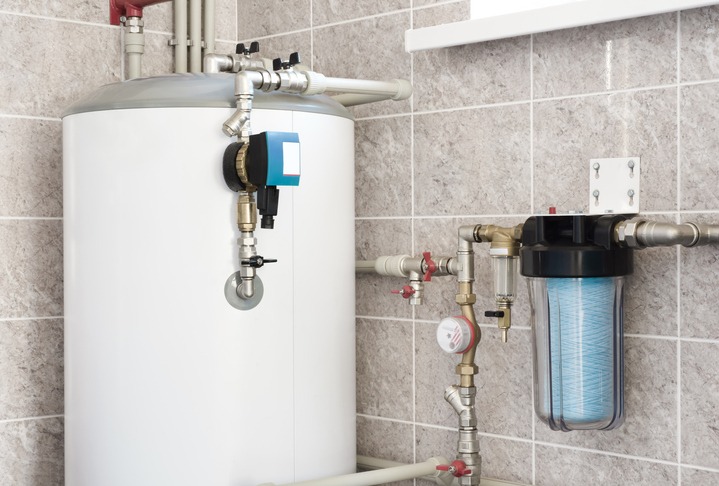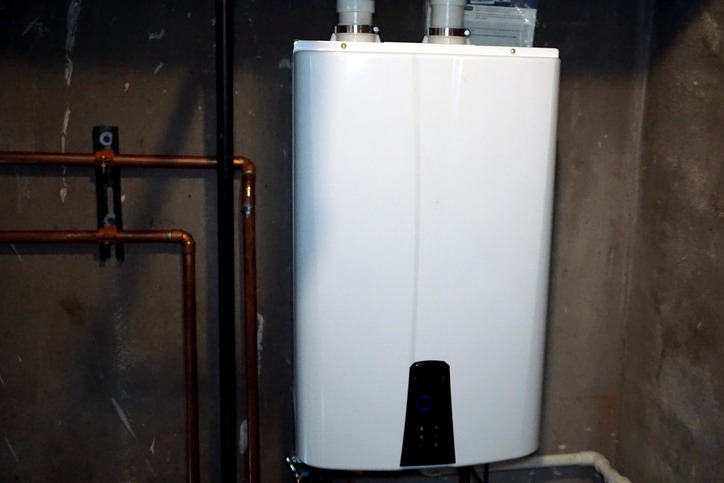Hot showers are some of the little things that bring us delight in our everyday life. There isn’t much that can ruin the start of your day as quickly as a cold shower. Plus, if you’re using the wrong water heater, this could become your new normal.
Before buying a water heater, make sure you consider how long it takes for it to heat up water. If you prefer to run lots of hot water throughout the day, you’ll need a more powerful system than if you just need the daily hot shower. While many factors can affect the time, here’s how long each type of heater takes to heat up water on average:
Check out water heeater replacement lake worth fl for more information.
Gas Water Heater
A gas water heater heats water faster than an electric model. It burns natural gas as fuel and heats water in the tank with powerful burners.
On average, a gas tank heater can take about 30 to 40 minutes to heat water once it enters the tank. The initial heat occurs when new water is fed into the tank from the plumbing supply.
How fast a gas water heater can heat up depends on the temperature it is set to and the temperature the cold water has to heat. On average, here’s how long it takes, depending on the water volume:
- 40-gallon gas water heater – 30-40 minutes
- 50-gallon gas water heater – 40-50 minutes
- 80-gallon gas water heater – 60-70 minutes
The average gas water heater carries around 40 gallons, and it takes about 30-40 minutes to heat 40-degree water up to 120 degrees. However, this is just an estimate, and it will vary by age and model. Also, keep in mind that if your tank has been storing hot water already, you will have hot water within just a few minutes.
Electric Water Heater
Electric water heaters take longer time to heat up compared to gas units. Typically, electric tank water heaters require double the amount of time compared to their gas counterparts. While typically more economical, electric heaters cannot compete with the high performance of gas-fired systems. These units use immersed electrical heating elements inside the tank to heat up the water.
The heating element wattage and the temperature set in the water heater setting can affect the time it spends heating water. Here are some averages:
- 40-gallon electric water heating – 60-80 minutes
- 50-gallon electric water heater – 145-150 minutes
- 80-gallon electric water heater – 120-130 minutes
From the time new water enters the tank, it will take about an hour for an electric water heater to warm up a 40-gallon tank.
Tankless Water Heater
Tankless water heaters warm up water on demand. These water heaters can provide almost instantaneous heat if sized and installed correctly. Whether it’s an electric or gas-powered water heater, it should only take a few seconds before hot water travels through the pipes into the shower or faucet.
The most significant factor that affects its water heating speed is the distance of the water heater to the appliance being used. If the heater is working properly, this must not take more than a few seconds in a normal-sized home. But if you have a big house, it may take a few more seconds to travel through the water pipes and reach appliances further away from the heater.
Other Factors that Affect Water Heating Time
Besides the type of water heater you use, other factors can affect how long it would heat up water.
First-hour delivery rate
Whether gas-powered or electric, all water heaters have a first-hour delivery (FHD) rating. FHD indicates how many gallons of hot water the heater can generate after an hour when it’s full. FHD rates are given in gallons per hour (GPH).
It means that a water heater with a high FHD rate can bring you more hot water sooner than a unit with a lower FHD rate. For a 50-gallon unit, an FHD rate of 60-80 GPH is an excellent choice.
Recovery rate
The recovery rate of a water heater is how many gallons of hot water the unit can create per hour as it is being used. It can tell you how quickly the water heater can recover with cold water and heat it up.
A water heater with a high recovery rate can generate hot water faster as it will take less time to heat it up. Even if you’re using a lot of hot water at once, a water heater with a high recovery rate and heat the incoming cold water faster.
Water heater size
The size of the water heater’s storage, or gallon capacity, has a lot to do with how quickly it can heat water. Usually, storage water heaters can hold anywhere from 30-80 gallons of water. Smaller water heaters can heat water faster since there are fewer gallons of water to heat. It’s just like heating water in a small saucepan versus a full stockpot.
Large-capacity gas water heaters contain a bigger gas burner to help them heat up quicker, making the process faster. But still, you won’t wait as long if you have a 30-gallon capacity water heater as if you had an 80-gallon unit.
Incoming water temperature
For both tank-style and tankless water heaters, the temperature that the water starts at will help determine how long it will thoroughly heat up. Because tank waters store water and can keep them heated, the incoming temperature won’t affect it much. However, tankless heaters feed incoming water on-demand moments before it comes out of the faucet. So, if the groundwater temperature is very low, the water may not get warm quickly. Both types of water heaters are affected by the ambient temperatures in the room where they are stored.
Settings
Though water heaters seem to be simple when compared with other household mechanical items, they often have more to them. If your heater isn’t working, you may need to get its settings or calibration checked out by a professional.
Distance from appliance
Sometimes it’s easy to forget about this, but your hot water will be traveling from the ground through the heater and pipes in your house before reaching the fixture or appliance you’re using. The farther it is from the heater, the longer it would take for the heated water to reach it and be used. A professional installer should account for this when setting up your water heater, so this won’t probably be too much of an issue.


